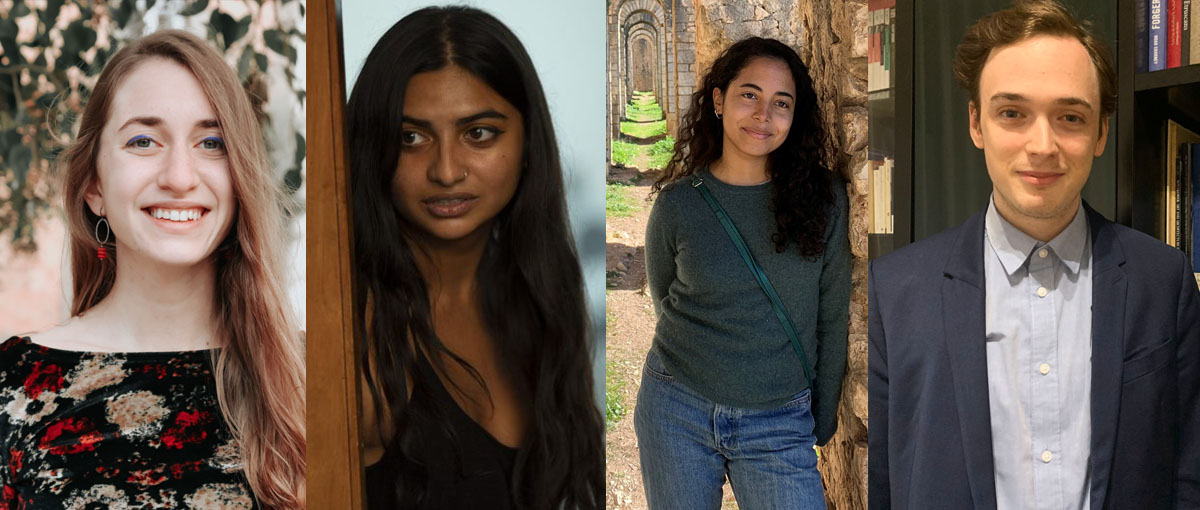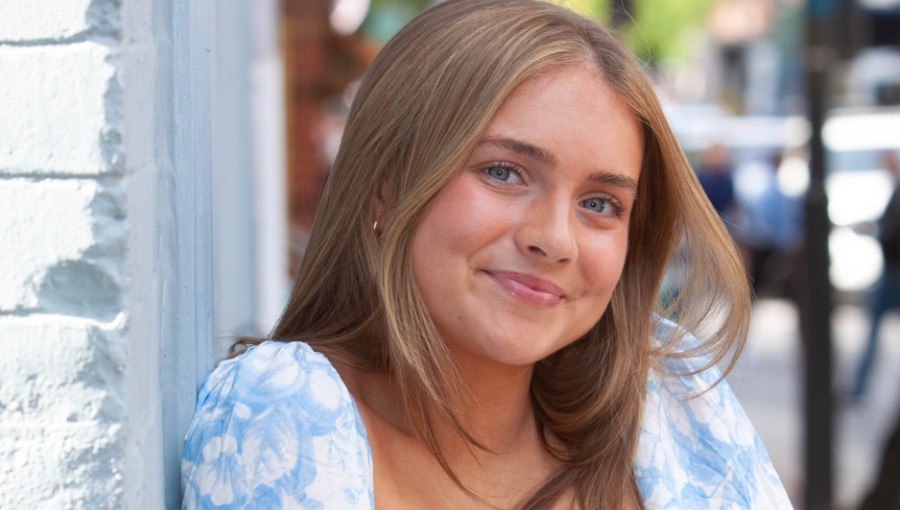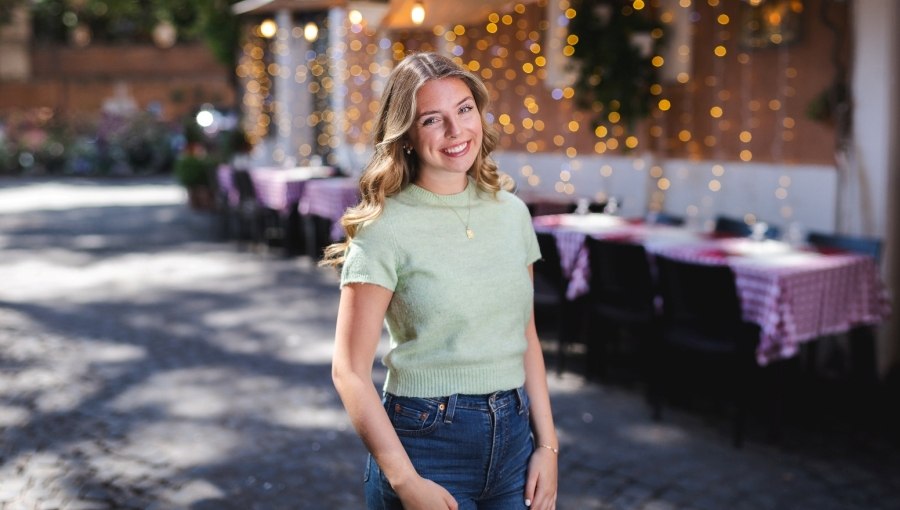The JCU Art History MA Program Through the Eyes of Four Students

From left to right: Lindsay Maldari, Lea Ramaswamy, Analaura Alvarez Largaespada, and Bernat Racz
John Cabot University’s Master of Arts (MA) in Art History, which welcomed its inaugural class in Fall 2017, is the first graduate degree program in art history based entirely in Rome offered by a U.S. accredited university. The program guides students toward professional mastery of the materials and methods of art history with emphasis on first-hand research in the museums, monuments, and archaeological sites of Rome. The degree can be completed in approximately fifteen months of full-time study.
Four current students recently joined Professor Lila Yawn, Director of the Art History MA, and Sonia Steinberg, Coordinator for Graduate Admissions for a webinar to discuss the program. Students Lindsay Maldari from NYC, Bernat Racz from Hungary, Analaura Alvarez Largaespada from Nicaragua, and Lea Ramaswamy from India reflect the diversity of JCU’s multicultural student body, which represents over eighty countries.
The following are excerpts from the MA in Art History webinar.
ADVANTAGES OF THE PROGRAM
The Art History MA program has a dual focus: the visual cultures of Rome and the Mediterranean across time, from antiquity to the present; and the acquisition of technical skills for primary research. It also stimulates critical perspectives on the impact of Roman art worldwide.
Lindsay Maldari: Not only is the program centered on small-class sizes and on-site learning, but we’re also supported by an incredible faculty with a diverse range of specializations, an intimate familiarity with Rome and strong connectedness to its rich opportunities, as well as a willingness and availability to help you reach your academic and professional goals.
Bernat Racz: Rome has been a center of artistic creativity for over two millennia. Our program allows us to study the art of Rome in-person in a serious and devoted academic environment. The organization of the program gives everyone an opportunity to discover and research the period and artwork they love. I am so impressed with the passion of the professors; it really motivates me for my own work.
Analaura Alvarez Largaespada: Lea and I did our undergraduate degree at JCU and one of the reasons that we decided to stay is because learning is not confined to the classroom; you just have to step out and walk around and it’s like being in a sort of class because there are wonderful resources all over the city. On a more institutional level, we are very lucky to have a great faculty, professors who are always available to help guide us through our research, through anything that we might need. This program is incredibly unique so I would definitely recommend it to anyone.
Lea Ramaswamy: I got my undergraduate degree from JCU and decided to stay. The access that you have as a master’s student to resources changes pretty drastically compared to undergraduate. It’s like the crystallization of so many avenues that really open up and become available to you.
PROFESSIONAL EXPERIENCE COMPONENT
A fundamental part of the program is the Professional Experience component, which may take the form of an internship at a museum, research institute, historic library, school, gallery, or foundation; a teaching or research assistantship at John Cabot University; or an entrepreneurial project that benefits a cultural institution, structured as a research assistantship with a JCU professor.
Bernat Racz: For the Professional experience component I’m doing a teaching assistantship and it’s truly fascinating. The course is about the medieval monuments of the city of Rome and I really enjoy preparing for the classes and creating a type of discussion with the students. It’s interesting to see a class from this other perspective and it has taught me a lot already.
Analaura Alvarez Largaespada: I’m doing a research assistantship with Professor Sharon Salvadori who’s one of our medieval art professors. It consists of building up an image bank of gender in the Middle Ages so we’re building up images and a bibliography and we’re putting it all in categories.
Lindsay Maldari: I’m also doing a teaching assistantship, with Professor Sarah Linford. It’s a course that I took at the MA level in the fall and is now being taught at the undergraduate level. Given that my professional goal is to become an art history professor, to have the chance to teach alongside a professor I know and respect is giving me a much better sense of how a professor crafts and constructs a course and all the dynamics that go into it, so it’s been an immensely useful experience for me.
THE FACULTY
Lindsay Maldari: Something that has really struck me about this program is just how varied the faculty is in terms of their interests. It’s been so lovely to see so many people truly deep into their focus teaching the material that they are so very familiar with. It’s just very much a privilege. I work a lot with Professor Sarah Linford, who focuses on modern and contemporary art, which is what I’ve studied. She’s also my thesis mentor. She as well as other faculty really make themselves available not just within the classroom outside of the classroom; they want to meet you where you’re at in terms of your research interests and really help you grow.
Lea Ramaswamy: I feel that the methods of all the professors are very contemporary, they keep up with their field. One of the things that makes studying at JCU as a master’s student so satisfying and such a positive experience is the relationship that you can have with faculty. You get to know them, they get to know you, and they care about you. You’ll definitely feel like you’re someone who matters. Faculty does make a difference and you’ll never be alone.





